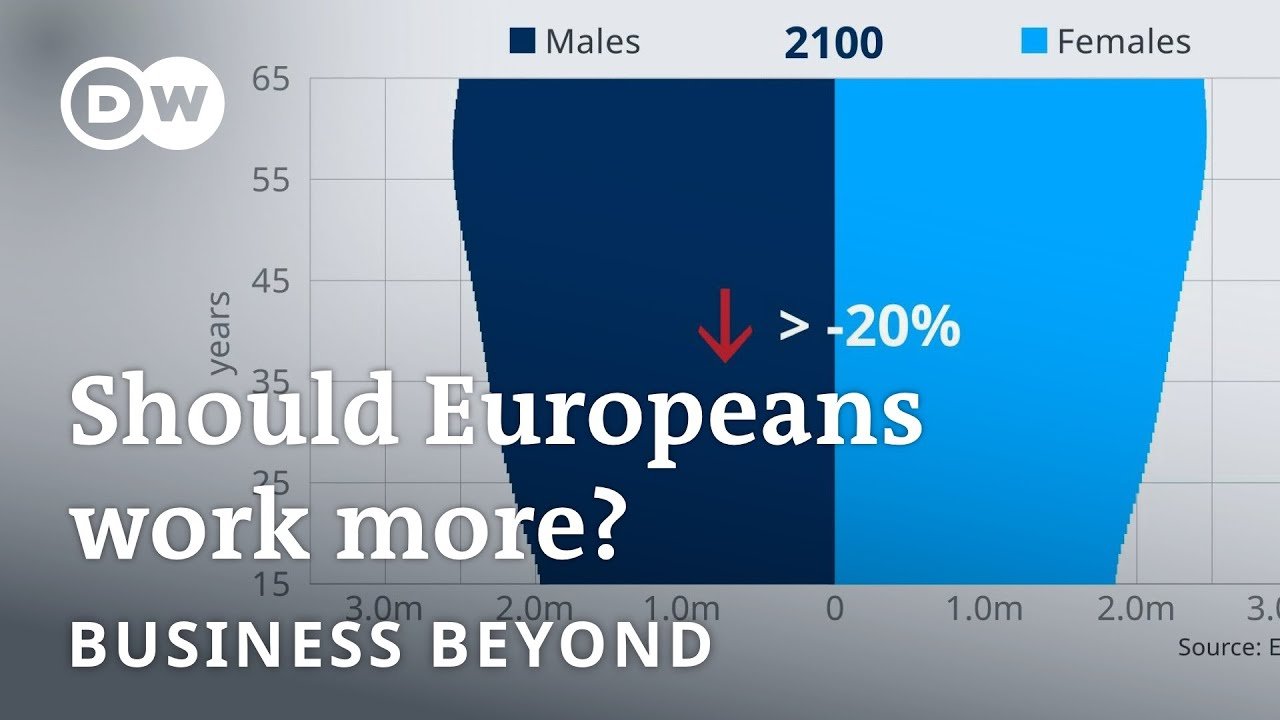Europe’s labor landscape is undergoing significant changes, reflecting a shift in how individuals balance their work and personal lives. The video explores the rising trend of part-time work across Europe, with a focus on countries like the Netherlands, Germany, Austria, and Switzerland. It delves into the reasons behind this trend, including societal aging, labor shortages, and changing attitudes toward work-life balance. The discussion also touches on the consequences of part-time work for the labor market and society, the potential for technology to impact job roles, and the critical role of women in shaping the future workforce.
- Almost half of the working population in the Netherlands works less than 35 hours a week.
- Labor shortages are intensifying across Europe, with countries like Germany, Austria, and Switzerland facing similar trends.
- Part-time work has grown in popularity, particularly among women, due to its flexibility and the ability to balance care obligations.
- European countries have some of the highest tax rates on second earners, which can discourage full-time employment.
- The average part-time worker in the EU works around 22 hours a week, placing wealthier European nations at the bottom of the list for annual working hours per worker.
- Western economies are facing a shrinking workforce due to demographic changes, with a 20% decline in working-age individuals expected in EU states.
- Healthcare and education are among the sectors suffering most acutely from labor shortages, with many new applicants preferring part-time positions.
- There is a cultural expectation and acceptance of part-time work in countries like the Netherlands, even among those who do not have caregiving responsibilities.
- The desire for work-life balance and personal fulfillment is influencing people’s decisions to work fewer hours across wealthier European countries.
- Efforts to encourage more full-time employment, such as increased child care support and changes to tax measures, have had mixed results.
- Employers are becoming more flexible in scheduling to accommodate workers’ needs, recognizing the importance of this flexibility in addressing labor shortages.
DW News is a global news TV program broadcast by German public state-owned international broadcaster Deutsche Welle (DW).
AllSides Media Bias Rating: Center
https://www.allsides.com/news-source/deutsche-welle-media-bias
Official website: https://www.dw.com
Original video here.
This summary has been generated by AI.
